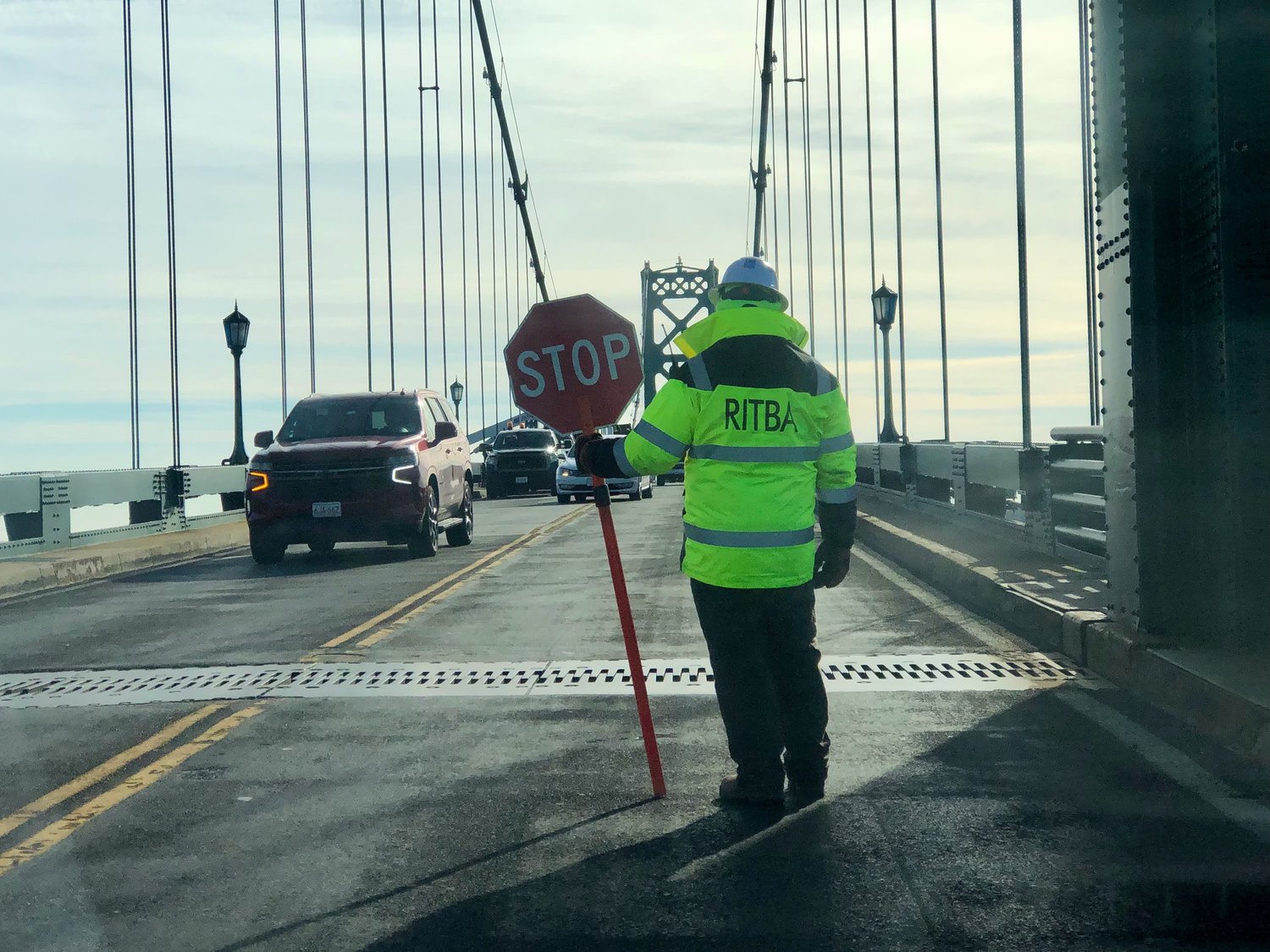Mt. Hope Bridge lane restrictions begin March 11
Dehumidification project aimed at extending span’s life
PORTSMOUTH/BRISTOL — Get ready to sit in traffic again while crossing the Mount Hope Bridge.
This item is available in full to subscribers.
Please log in to continue |
Register to post eventsIf you'd like to post an event to our calendar, you can create a free account by clicking here. Note that free accounts do not have access to our subscriber-only content. |
Day pass subscribers
Are you a day pass subscriber who needs to log in? Click here to continue.
Mt. Hope Bridge lane restrictions begin March 11
Dehumidification project aimed at extending span’s life
PORTSMOUTH/BRISTOL — Get ready to sit in traffic again while crossing the Mount Hope Bridge.
The Rhode Island Turnpike and Bridge Authority (RITBA) on Wednesday released details of scheduled lane restrictions on the bridge this spring.
Cable air flow testing, part of the design of the Mount Hope Dehumidification project, is scheduled to begin March 11. During this initial phase of work, traffic on the bridge will be restricted to one lane between 9 a.m. and 3 p.m., Monday through Thursday; and from 9 a.m. to 1 p.m. on Fridays.
According to RITBA, dehumidification “creates a dry state within the cables that effectively stops corrosion and wire breaks, and maintains the bridge in a state of good repair.” The approach adapts the bridge to the projected impacts of climate change, making it more resilient.
There is no practical way to replace any strength lost in a cable due to corrosion. Dehumidification, however, can preserve the remaining strength in the cables, according to RITBA.
This initial phase will conclude by May 17, according to RITBA.
Town Administrator Richard Rainer, Jr. briefed the Town Council on the project Monday night.
“The construction of the final project is expected to begin in the fall of 2024 and spring of 2025, depending on the timing and results of the public bidding process,” Rainer said. “The project is expected to be complete by March of 2028. While land closures will be necessary, much of the work will be done up on the cables, so that traffic lanes will be fully open once the scaffolding is in place.”
Lori Caron Silveira, RITBA’s executive director, said the dehumidification process is a critical project that will extend the life of the historic bridge by 50 to 75 years.
“We understand the challenges that bridge work creates and we have carefully considered how to minimize the impact of this much-needed project,” Silveira said. “These restrictions will be in place before the summer months, outside of rush hour, and at predictable times. We hope that advance notice will help people plan ahead for longer trips across the bridge.”
According to RITBA, dehumidification “creates a dry state within the cables that effectively stops corrosion and wire breaks, and maintains the bridge in a state of good repair.” The approach adapts the bridge to the projected impacts of climate change, making it more resilient. There is no practical way to replace any strength lost in a cable due to corrosion. Dehumidification, however, can preserve the remaining strength in the cables, according to RITBA.
“This is a critical project that will extend the life of this historic bridge by 50 to 75 years,” said Lori Caron Silveira, RITBA’s executive director of RITBA. “We understand the challenges that bridge work creates and we have carefully considered how to minimize the impact of this much-needed project.
"These restrictions will be in place before the summer months, outside of rush hour, and at predictable times. We hope that advance notice will help people plan ahead for longer trips across the bridge.”
Note: This story was updated on Tuesday, Feb. 13 to add comments from Portsmouth Town Administrator Richard Rainer, Jr.






